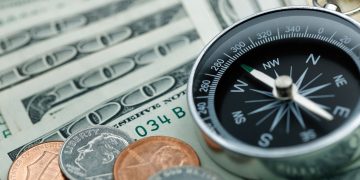Household Expense Hacks: Insider Tips to Stretch Your Budget Further

Turn Off Lights and Electronics When Not in Use
One of the simplest yet most effective ways to save on energy bills is by turning off lights and electronic devices when they’re not in use. This small habit can lead to substantial savings over time. For instance, leaving lights on in an empty room is a common oversight, but by making it a habit to switch off lights when exiting, you can reduce your electricity expenditure significantly.
Switch to LED Bulbs for Long-Term Savings
Switching to LED bulbs is another brilliant strategy for energy efficiency. LED bulbs consume less energy and have a much longer lifespan compared to traditional incandescent bulbs. While the initial investment in LED bulbs may be slightly higher, the long-term savings are undeniable. LEDs use up to 75% less energy and last up to 25 times longer, making them a cost-effective choice in the long run.
Invest in Energy-Efficient Appliances and Home Improvements
When it’s time to replace household appliances, opting for energy-efficient models can significantly cut down on energy use. Look for appliances labeled with high energy efficiency ratings. Beyond appliances, consider energy-efficient home improvements like thermal insulation, energy-efficient windows, and solar panels. These investments can lower your energy bills and increase the overall efficiency of your home.
Making these changes not only reduces your utility costs but also contributes to a more sustainable environment. For a detailed guide on how to cut household costs, visit the Complete Guide: How to Save on Household Expenses.
Food Savings Strategies
Plan Meals in Advance
One of the simplest yet most effective ways to save on food expenses is by planning your meals in advance. By creating a weekly meal plan, you can craft a detailed shopping list that ensures you only purchase what you need. This minimizes impulse buys and reduces the chance of ending up with items that go to waste. An organized approach to meal planning can save you time and money while helping you maintain a healthy diet.
Buy Seasonal and Discounted Produce
Opting for seasonal produce is a smart way to cut grocery costs. Seasonal fruits and vegetables are generally more abundant, making them more affordable and fresher. Additionally, keep an eye on discounts and promotions at your local store. Many grocery stores offer weekly deals, bulk discounts, and quick-sale items that are perfectly good but need to be sold quickly. By taking advantage of these savings, you can reduce your grocery bill substantially.
Utilize Leftovers
Another key strategy for reducing food waste and saving money is making the most of your leftovers. Transform them into new meals or freeze them for future use. For example, leftover vegetables can be used in soups, stews, or stir-fries, while cooked meats can be added to salads or sandwiches. Proper food storage, like using airtight containers and labeling items with dates, will also help prolong the shelf life of your groceries.
Proper Food Storage
Effective food storage can extend the life of your perishable items and prevent spoilage. Invest in good-quality, reusable containers, and make sure to store foods at the correct temperatures. Keep your fridge organized to easily see what you have, and rotate items so older products are used first. Freezing excess portions is another great way to minimize waste and ensure you always have a meal on hand.
For more tips, refer to this guide which outlines various strategies:Source: Example Website
Housing Cost Reduction Tips
Renegotiate Rent or Mortgage
One of the most effective ways to reduce your housing costs is by renegotiating your rent or mortgage. If you’re a renter, have an open discussion with your landlord about the possibility of lowering your rent. Highlight your reliability as a tenant and current market rates to support your case. Homeowners might consider refinancing their mortgage to secure a lower interest rate. This can result in significant savings over time. Always compare multiple offers and read the fine print before committing to a new agreement.
Consider Roommates or Renting Out Unused Space
If you have extra rooms in your home, consider taking in a roommate or renting out unused space. Sharing your living space can significantly cut your costs by splitting utilities and rent or mortgage payments. Platforms like Airbnb allow homeowners to rent out a room or an entire home for short-term stays, offering a flexible way to supplement your income. Ensure you check local regulations and obtain necessary permissions before proceeding.
Install Water-Saving Fixtures and Insulation
Making small home improvements can make a big difference in your utility bills. Start by installing water-saving fixtures such as low-flow faucets and showerheads, which can reduce water use by up to 30%. Additionally, adding insulation to your home helps maintain a stable temperature, reducing the need for excessive heating or cooling. Sealing cracks and gaps in doors and windows can also improve energy efficiency. Such investments not only lower your bills but also make your home eco-friendlier.
- Source: Example Website
Entertainment on a Budget
Take Advantage of Free Community Events
Community events are hidden gems for those looking to entertain themselves on a budget. Many localities host a variety of free events throughout the year, such as outdoor concerts, art fairs, farmers’ markets, and cultural festivals. These events are not only cost-effective but also a splendid way to connect with the community and enjoy time outdoors. Keep an eye on your local community boards and websites to stay updated on upcoming events.
Opt for Outdoor Activities
You don’t need to spend a fortune to have fun. Outdoor activities like hiking, picnicking, and biking are engaging ways to enjoy nature without hitting your wallet hard. Parks and nature trails are often free and offer a great escape from the daily grind. Planning a day out with friends or family enjoying nature can be both rejuvenating and inexpensive.
Use Streaming Services
Ditching cable TV in favor of streaming services can lead to significant savings. Platforms like Netflix, Hulu, and Amazon Prime offer a broad range of movies, series, and documentaries at a fraction of the cost of cable subscriptions. Many services also offer free trials or bundle deals, so compare options to find the best value for your entertainment needs.
Leverage Discounts and Loyalty Programs
Make the most out of available discounts and loyalty programs to stretch your entertainment budget. Many theaters, museums, and amusement parks offer discounted tickets or special deals on certain days. Sign up for loyalty programs at your favorite eateries and shops to receive exclusive discounts and rewards. Always check for student, veteran, or senior discounts if applicable.
Being mindful of your entertainment expenses doesn’t mean sacrificing fun. Use these hacks to enjoy life without breaking the bank, and remember that the best experiences often come from simple, affordable pleasures.
Transportation Cost Cutters
Walk or Bike
If you’re traveling short distances, consider walking or biking instead of driving. Not only does this save money on fuel and parking, but you’ll also get some exercise and reduce your carbon footprint. It’s a win-win for your wallet and the environment!
Use Public Transportation
Whenever possible, make use of public transportation. Buses, subways, and trains are often more cost-effective than maintaining and driving a private car. Check your local transit options and consider getting a monthly pass for additional savings. Public transportation can also save you the hassle and costs of parking and vehicle maintenance.
Carpool
Another great way to cut down on transportation costs is by carpooling. Coordinate with coworkers, neighbors, or friends who have similar routes. By sharing rides, you can split fuel and parking costs while also contributing to a reduction in overall traffic and emissions.
Maintain Your Vehicle Properly
Proper maintenance of your vehicle can lead to significant cost savings over time. Regular maintenance tasks like keeping your tires properly inflated, changing the oil regularly, and performing periodic checks will help your vehicle run more efficiently and reduce fuel consumption. These small measures can prevent costly repairs and improve your car’s performance and lifespan.
Key Tips for Efficient Vehicle Maintenance
- Keep tires at the recommended pressure levels to enhance fuel efficiency.
- Change the engine oil regularly according to manufacturer recommendations.
- Perform routine checks on brakes, filters, and other critical components.
By adopting these transportation cost-cutting measures, you can effectively reduce your expenses and make more efficient use of your money. Implementing small changes in your travel habits can lead to significant savings and contribute to a more sustainable lifestyle. Source: Example Website
Communication Cost Savers
Reevaluate Phone and Internet Plans
If you’re looking to save on household expenses, your phone and internet plans are a great place to start. Many of us stick with the same provider and plan for years without realizing we may be overpaying. Start by taking a detailed look at your current usage versus what you’re paying for. Do you really need unlimited data, or can you switch to a lower-tier plan? Similarly, assess your internet speed needs; many households pay for more bandwidth than they actually use.
Once you understand your requirements, compare different providers. Many companies offer promotional rates for new customers. Source: Consumer Reports can be a good resource for finding reviews and detailed comparisons. Don’t hesitate to call your current provider to negotiate lower rates—mentioning a competitor’s offer might incentivize them to give you a better deal.
Utilize Free Messaging and Communication Apps
Gone are the days when you had to pay exorbitant amounts to stay in touch with loved ones. With the plethora of free communication apps available now, you can significantly reduce your phone bill. Apps like WhatsApp, Skype, and Zoom offer free text messaging, voice, and video calls over WiFi or mobile data. If a significant portion of your phone bill consists of international calls, switching to these apps can cut down those costs substantially.
Additionally, many social media platforms like Facebook Messenger and Instagram offer integrated messaging and call features, which can facilitate both casual and business-related communication without extra costs. Source: PCMag provides a comprehensive list of the best free phone call apps to help you get started.
Next up in the outline is a section on “Emergency Fund Essentials.” Here, we will focus on the importance of building and maintaining an emergency fund to cushion against unexpected expenses.
Emergency Fund Essentials
When it comes to financial stability, having an emergency fund is non-negotiable. It provides a crucial cushion that can protect you from unexpected financial shocks, such as a sudden job loss, medical emergencies, or urgent home repairs. Let’s delve into effective strategies to build and maintain this essential safety net.
Set Aside Funds for Unexpected Expenses
Start Small but Stay Consistent
Begin by setting aside a small portion of your income each month. It doesn’t have to be a significant amount at first. The key is consistency. Gradually, as your financial situation allows, you can increase the amount you save. This habit of regular savings can significantly ease financial stress during emergencies.
Automate Your Savings
Consider automating your savings to ensure discipline. Set up an automatic transfer from your checking account to a separate savings account designated solely for emergencies. This automation not only ensures you save regularly but also removes the temptation to spend that money impulsively.
Avoid Dipping Into Emergency Savings Unnecessarily
Define ‘Emergency’
Clearly define what constitutes an emergency. Use your emergency fund only for genuine emergencies like sudden car repairs, medical expenses, or an unexpected job loss. Non-urgent expenses, like a vacation or a shopping spree, should not dip into this fund.
Supplement With a Buffer Account
Maintain a secondary buffer account for smaller, less-critical expenses that don’t qualify as emergencies but still require addressing. This approach helps to keep your primary emergency fund intact for genuine crises.
- Notable Practices to Enhance Your Emergency Fund
- Review and Adjust: Periodically review your savings strategy and adjust as necessary. As your income grows or expenses change, you might find room to save more.
- Reduce Debt Alongside Saving: High-interest debts can eat into your budget and savings. Aim to reduce or eliminate those to free up more funds for your emergency savings.
By incorporating these practices, you build a robust financial buffer that protects you from life’s uncertainties. Remember, the goal is to create a stress-free financial environment that allows you to handle emergencies





